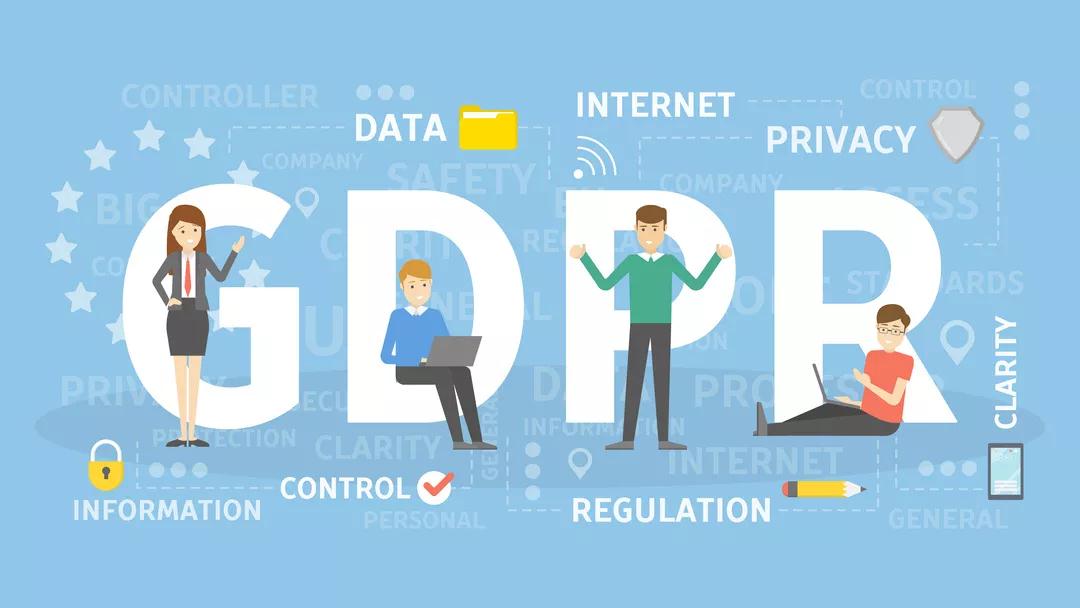Deeply embedded into the fabrics of the web, big data is born out of people’s thoughts and activities in general. Thus, it is fair to say people are the creators of such data, and our focus on the property rights of big data will gradually expand from infringement on private information to the sharing and use of these rights in a broader sense.
The current data industry is experiencing a phase of frantic development not unlike urbanization, and how to determine the property rights of data as assets and build a sound property rights system accordingly is a key question concerning the industry’s future, said Wang Zhicheng, associate professor of finance with Peking University’s Guanghua School of Management.
RIGHTS TO PROPERTY, PERSONALITY

Embodying people’s all kinds of thoughts and activities in daily life, data is the result of materials from the tertiary sector being further processed and digitized, and thus can be viewed as a form of the quaternary sector. With increasing efforts to analyze and use data, all human activities will be digitized and converted into algorithms eventually. The fast development of artificial intelligence is exactly based on imitating and realizing human thoughts and activities through algorithms.
By collecting and analyzing data, we strive to forecast human activities based on historical information, and in this way, quickly understand consumers’ demands so as to provide better services.
That said, land and other economic resources were not properties from the very start. They only became valuable properties that led to property rights and ownership after human economic activities made them important and rare. Data is no different. A property right system has already been established in its early stage in some fields involving valuable intellectual property rights and copyrights. Meanwhile, data recording mass activities are not qualified as assets as long as it has not been properly collected, analyzed and extracted. With enhanced analysis technologies, data will become more sought-after and thus more valuable as assets in our economic system. Consequently, its ownership is increasingly becoming a hotspot issue for various parties with vested interests.
As creators of these raw data materials, the general public initially focus their concerns on privacy infringement, but might gradually grow to take an interest in sharing and exercising their rights in a broader sense — especially as the Internet economy is evolving into a mode where data is shared and participants have rights and gains. Therefore, it is of significant importance to set up a just and effective property rights system for the data industry to ensure sharing, cooperation and rightful gains.
In essence, data privacy includes two individual rights: personality right and property right. The right to liberty is an inviolable part of personality right, and labor force can be transferred and converted into values. The data industry will follow suit. Privacy data as part of people’s personality rights will mainly be preserved by public institutes and credit services organizations, while data as part of property rights can be made available for value sharing through authorization.
LAWS AND ORDERS

Data has become a category of assets that is more transferrable, easily copied and flexible than debts and intellectual property rights. The current data sector is switching from scattered data collecting nodes to an increasingly streamlined, interconnected network that enables large-scale collection and analysis. As the data businesses grow more prosperous, rules and orders are necessary for their safety and effective operation, much like traffic regulations for urban roads.
A key goal of collecting and analyzing data is to facilitate all kinds of human interactions, especially in the realm of credits. If people trust each other, frictions during economic trades and costs of social operations will be minimized. As for the establishment of a credit system, developed countries followed the same pattern — with huge population flow and economic opening-up during the industrialization period, the old social system lost grasp and a new one was yet to come, and people resorted to improper behaviors for economic gains and the social credit system deteriorated; afterwards, partial reconstructions led to the birth of a new credit system. During four decades of opening-up and reforms, China not only experienced industrialization and urbanization, but also embraced the ground-shaking changes brought by mobile networks. More efforts are needed to rebuild China’s credit system.
DATA & CREDITS

In addition to people’s honesty and kindness, credits are also based on the anticipation of future gains and restraints. A data record enables one to keep track of people’s interactive activities. Humans are able to transcend mere material benefits and connect with each other at a spiritual level based on responsibilities, goodness so as to fulfill promises, reach consensus and obey rules. The core of credit culture is to respect other people’s labor and interests instead of seeking benefits for oneself at all costs. A society’s culture serves as the foundation for its people’s credits. With the spirit of contract and values encouraging win-win cooperation, a credit system will be built and put on the right track more easily. Otherwise, it will be difficult for a sound credit system to take root.
Credits involve people’s inner ideology. Our current credit system is mainly based on individuals, but the impact of institutes in the financial market has already surpassed individuals in many aspects. However, a sound credit system has yet to be built among these institutes, some of which are grabbing data in the name of financial services for people but actually aim to fleece money out of people in the fashion of Ponzi schemes. Financing products that promise over 30 percent annual returns are far from long-term, sustainable and these institutes obviously do not have their clients’ interests in mind.
The role laws and regulations play in the financial sector is a bit different from theirs in other realms. To some extent, the goal of financial innovation is to gain the upper hand than rules and supervision so as to achieve more profits. In a situation where financial supervision keeps lagging behind industrial practices, data analyzers should be careful not to let their technologies and data fall into evil hands, otherwise their cutting-edge technologies and precious data will only lead to more severe damage to the financial system and the society.
Naturally, the virtues of people working in the data sector are a crucial factor for its healthy development. In China, people have a relatively weak sense of rules, and inadequate punishment for wrongdoers means illegal gains usually outweigh costs. That is why we are in urgent need of data talents that respect rules and people. Our laws and regulations should also step up to ban wrongdoers from working in the data sector and impose credits punishment. Education institutes, in addition to teach knowledge and skills, should make more efforts to strengthen a sense of virtue in learners.
Data is rich and easy to collect because people are connected via the web and everyone of them participates. The management of data and regulating of the data sector also requires information technology, the Internet and a mechanism where everyone can participate. Only a property right system that maximizes the benefits of the general public will put a stop to various improper behaviors in the data industry. Meanwhile, an industrial self-regulating and law enforcement system is also needed to establish proper channels for victims to voice their cases and for the general public to report on improper behaviors.
As data is easily copied and tempered with, the sector should focus on encryption and a tracing mechanism, a technology that is more often used in crypto-currency but should be really integrated into data management.
Also, clear definitions should be made by specialized teams concerning data as property right and data as part of personality right. However, talents in designing and implementing industry-wide data system are what we lack the most.
 Programs
Programs